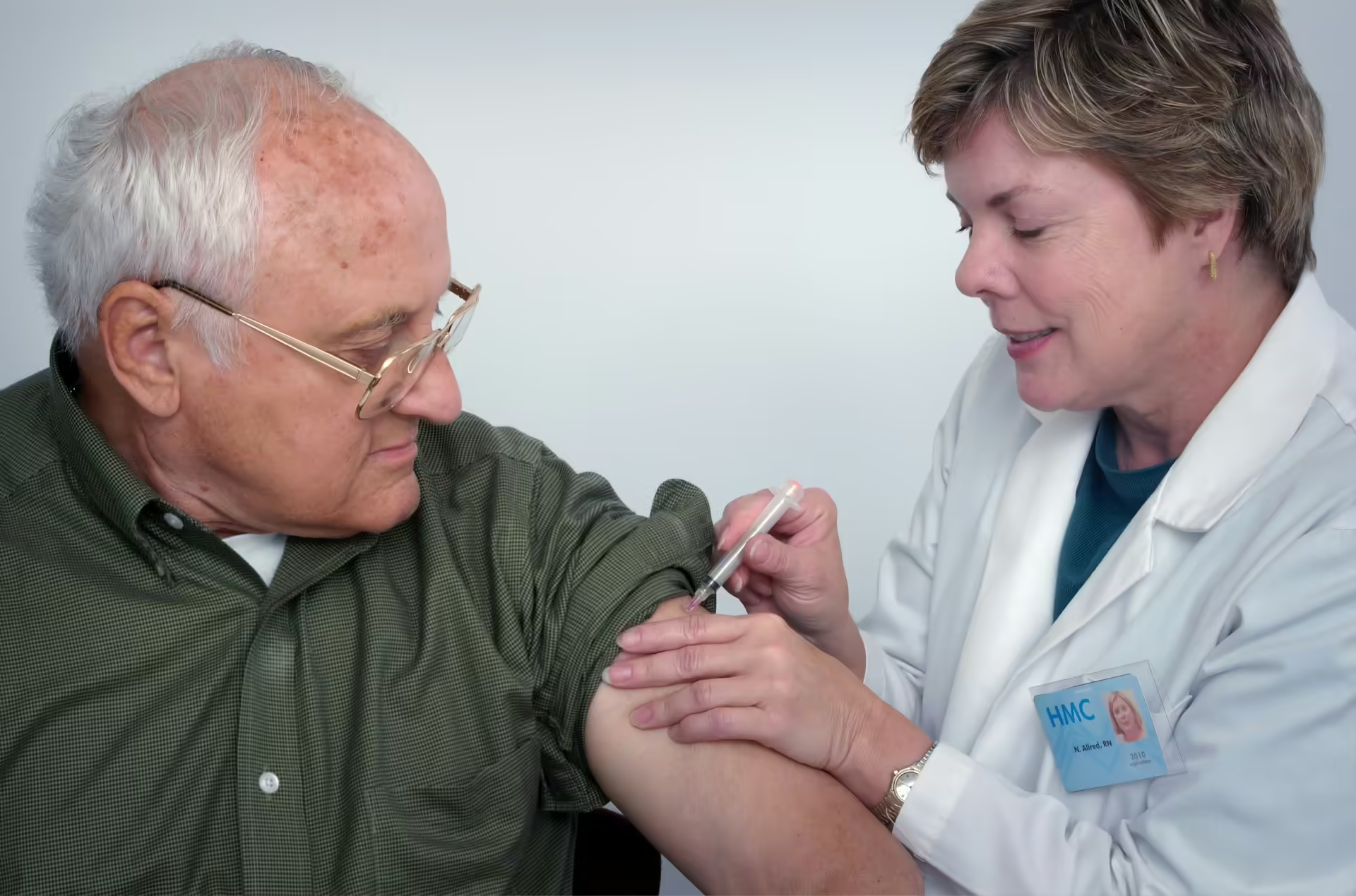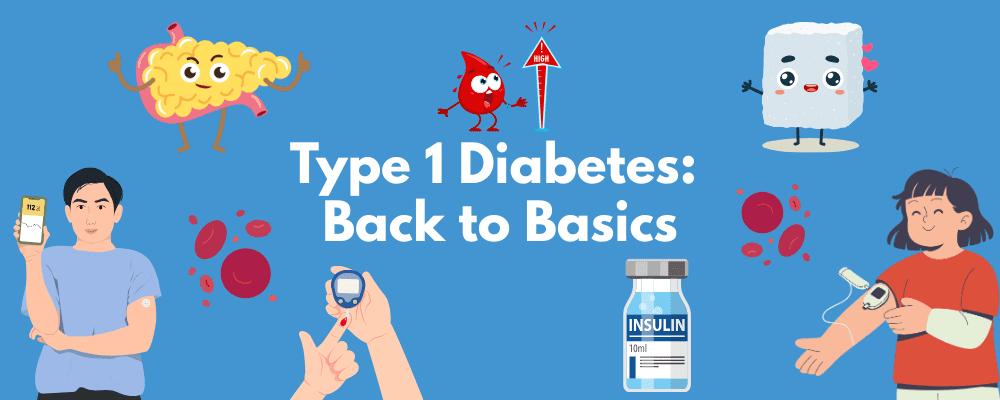As flu season begins, it brings additional concerns for individuals managing type 1 diabetes (T1D). Viruses, particularly the flu, can cause unpredictable blood sugar fluctuations and increase the risk of severe complications, making it a critical time for those with T1D to take extra precautions. The flu can put significant stress on the immune system, leading to dangerous highs and lows in blood sugar levels. This is why getting the flu vaccine is essential for people with T1D, as it helps prevent serious illness and complications, allowing for better overall diabetes management during flu season.
Flu Vaccine Recommendations for People with T1D
It’s highly recommended that people with T1D get the flu vaccine early in the season, ideally by the end of October, to ensure maximum protection during the peak flu months. This early vaccination gives the body enough time to build immunity before flu season intensifies.
For individuals with T1D, the injectable flu vaccine (inactivated or recombinant) is preferred over the nasal spray. The nasal spray contains a live attenuated virus, which may not be suitable for those with certain health conditions, including T1D.
It’s important to consult with your healthcare provider or endocrinologist to confirm the right type of vaccine for you. They can help ensure the vaccine aligns with your health needs and overall diabetes management.
How the Flu Can Affect People with T1D
For people with T1D, the flu can significantly impact blood sugar levels, leading to unpredictable swings between hyperglycemia (high blood sugar) and hypoglycemia (low blood sugar). The body’s response to infection and fever can increase insulin resistance, making blood sugar harder to manage. This means that even well-controlled diabetes can become more difficult to stabilize during illness.
One of the major risks for people with T1D during the flu is the increased likelihood of diabetic ketoacidosis (DKA). Illness can accelerate the buildup of ketones, especially when blood sugar is high and insulin levels are insufficient. This makes it essential to monitor both blood sugar and ketone levels more frequently to prevent DKA from developing during periods of illness.
Getting the flu vaccine is one of the most effective ways to protect against these complications. By reducing the risk of severe illness, the flu vaccine helps manage the impact on blood sugar and decreases the likelihood of dangerous conditions like DKA.
Protecting people with T1D from severe flu complications is crucial, and supporting research can help improve flu management for the T1D community. Consider donating to Diabetes Research Connection (DRC) to help fund studies that lead to better prevention strategies and tools to keep blood sugar stable during illness.
Staying Healthy and Avoiding the Flu with T1D
Preventing the flu is especially important for people with T1D, as it helps avoid the complications that come with the illness. To reduce the risk of getting sick, focus on preventive measures like frequent handwashing, avoiding crowded places, wearing a face mask in public, and limiting exposure to those already ill. Encouraging good hygiene, such as using hand sanitizers and covering coughs, can also help reduce the spread of viruses.
Supporting the immune system with proper nutrition and hydration is another key factor in staying healthy during flu season. Eating a balanced diet rich in vitamins and nutrients helps fight infections more effectively. Staying hydrated is also critical for maintaining overall health and managing blood sugar levels, particularly when the body is working harder to fend off illness.
Additionally, creating a safe, healthy environment at home is essential to protect children and family members with T1D. Disinfect common areas frequently and promote good hygiene habits to reduce the risk of illness. By taking these precautions, families can better protect themselves and avoid the flu, while also keeping blood sugar levels stable during flu season.
Symptoms Requiring Emergency Care and What to Monitor
For people with T1D, certain flu symptoms require immediate medical attention. Signs of a medical emergency include persistent vomiting, severe dehydration, high fever, difficulty breathing, or symptoms of diabetic ketoacidosis (DKA), such as fruity-smelling breath, confusion, or rapid breathing. If any of these symptoms arise, seek emergency care immediately.
During illness, it’s important to monitor blood sugar frequently, as the flu can cause unpredictable fluctuations. Check blood sugar levels more often than usual, especially if your child has a fever or difficulty keeping food down. If blood sugar levels become erratic, adjust insulin doses as necessary. It’s always a good idea to consult your endocrinologist to confirm dosage adjustments during illness.
Make sure to keep essential medical supplies on hand, including insulin, glucose meters, ketone strips, and hydration solutions such as electrolyte drinks. These tools are crucial for effectively managing T1D during flu season. Monitoring ketone levels regularly is particularly important, as this can help prevent DKA.
Lastly, remember to stay hydrated while sick as dehydration can worsen both the illness and blood sugar control, making it even more challenging to manage T1D.
Monitoring Blood Sugar and Recovery After the Flu
After the flu, it may take some time for blood sugar levels to stabilize, as the body continues to recover from the stress of illness. During this period, it’s essential to continue monitoring blood sugar closely, as levels can still fluctuate. Using tools like a continuous glucose monitor (CGM) or insulin pump can help track real-time changes and provide better control during recovery.
Work with your endocrinologist to adjust the treatment plan if necessary, particularly if blood sugar levels remain unpredictable. They can help guide adjustments in insulin doses and provide recommendations based on your recovery progress.
Staying hydrated and maintaining balanced nutrition is crucial during recovery. Proper hydration supports recovery from illness and stable blood sugar control, while a well-rounded diet helps the body regain strength and avoid further complications. Prioritizing these steps ensures a smoother recovery and prevents lingering issues as you return to normal health.
Protecting Yourself and Managing T1D During Flu Season
Flu season can present extra challenges for people with T1D, but taking the right steps can help manage those risks. Getting the flu vaccine is essential for preventing severe illness and reducing the chances of dangerous complications like DKA. In addition, staying vigilant with blood sugar monitoring and making adjustments as needed can help you navigate the unpredictable effects of illness.
With proper precautions—such as maintaining good hygiene, monitoring blood sugar levels frequently, staying hydrated, and working closely with your healthcare provider—people with T1D can safely get through flu season. Staying informed and prepared helps protect your health and supports better diabetes management during this critical time.
Staying healthy during flu season is vital for people with T1D, and advancements in research can help us better manage diabetes during illness. By donating to DRC, you can support critical research that aims to prevent complications like DKA and improve flu-related care for individuals with T1D.




